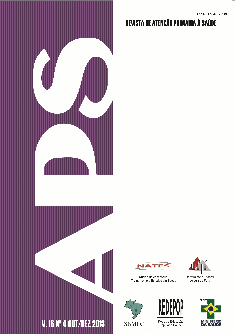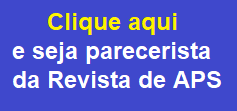SAÚDE BUCAL NA AGENDA DA POLÍTICA DE DST/AIDS NO BRASIL, CEARÁ E FORTALEZA. Oral Health in the policy agenda for the STD / AIDS in Brazil, Ceara and Fortaleza
Palabras clave:
Assistência Odontológica Integral, Síndrome de Imunodeficiência Adquirida, Políticas Públicas de Saúde. Comprehensive Dental Care, Acquired Immunodeficiency Syndrome, Health Public PolicyResumen
A magnitude da infecção pelo vírus da imunodeficiência humana (HIV) é inquestionável, apresentando impactos individuais e coletivos. Assim, torna-se evidente a necessidade de políticas públicas que orientem a atenção e assistência à saúde de Pessoas Vivendo com HIV/Aids (PVHA), em especial à saúde bucal, que caracteriza-se pela área de maior exclusão social na história das políticas públicas no Brasil. Buscou-se discutir as estratégias políticas de assistência odontológica a PVHA no Brasil, no Ceará e em Fortaleza por meio de uma pesquisa qualitativa do tipo análise documental, baseada no exame do conteúdo de documentos e páginas oficiais disponíveis nas três esferas de governo. Na esfera federal, verificou-se apenas um documento direcionando a atenção odontológica a PVHA presente na Política Nacional de Saúde Bucal e gerando ações de capacitação de cirurgiões-dentistas (CD) para assistência a essa população. No âmbito estadual, localizou-se somente documentos referentes aos Planos de Ações e Metas (PAM), do Programa Estadual de DST/Aids, com o mesmo direcionamento. Fortaleza apresentou a maior quantidade e abrangência de documentos sobre essa temática, propondo ações de capacitação para CD e universalização do acesso à saúde bucal para PVHA. A agenda específica de cada política indica prioridades dentro das diretrizes gerais. Observou-se que, dentro da agenda do Programa Nacional de DST/Aids, a saúde bucal parece ainda não estar entre os objetivos principais, cabendo predominantemente aos estados e municípios definir como relevante a implementação de ações direcionadas a saúde bucal dessa população, evidenciando-se a necessidade de avançar na discussão sobre a saúde bucal de PVHA.
The magnitude and impacts of infection from the Human Immunodeficiency Virus (HIV) are unquestioned. It is therefore apparent that there is a need for public policies that guide public health services for people living with HIV/Aids (PLHA), especially in dental health, which has been characterized as the area of greatest social exclusion in Brazilian public policy. This study has sought to review the policy strategies in buccal health for PLHA in Brazil, Ceará state and Fortaleza municipality using the analysis of documents and official decrees from the three levels of government. At the federal level, it was found only one document guiding of dental care for PLHA that outlines training activities for oral surgeons to treat this population. At the state level, we only found documents that make reference to the Plan of Activities and Goals from the State STD/AIDS Program, which gives the same training outlines. The municipality of Fortaleza presented the highest quantity and scope of documentation in this area, proposing training activities for oral surgeons and the universal coverage of dental health care for PLHA. The specific agenda for each policy indicates its priority within the overall guidelines. It was observed that within the agenda of the National STD/AIDS Program, buccal health does not appear to be among the main objectives, falling to the states and municipalities to define the relevance of implementing services directed towards dental health of this population. This shows the need to move forward in the discussion of dental health policies for PLHA.







